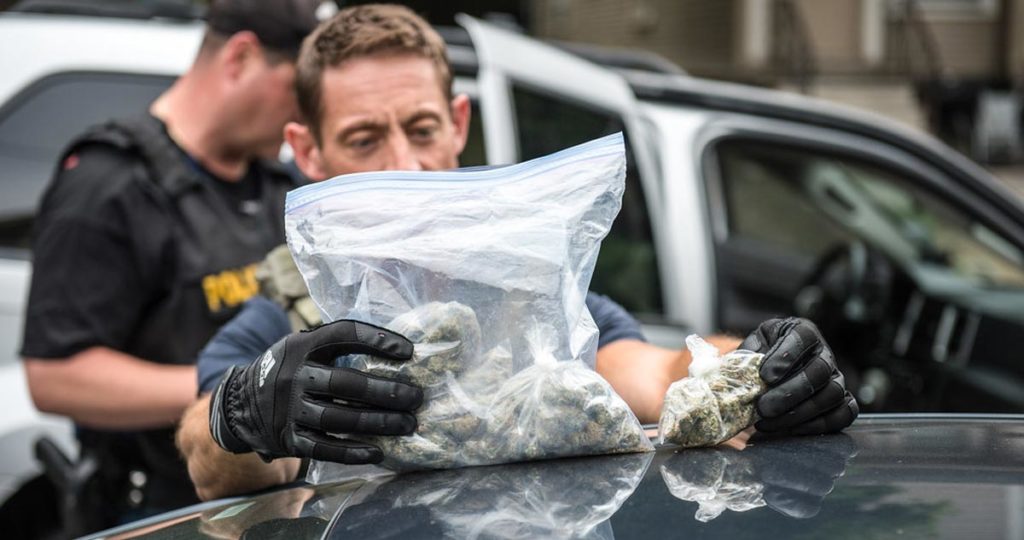Marijuana Legalization & The Struggle For Anti-Racism

The Correlation Between Racism and Cannabis Culture
The fight for racial justice has been particularly strong over the last few weeks. After the killings of black people by police – George Floyd and Breonna Taylor, among many others – Americans and the rest of the world have been speaking up against racism and police brutality.
For some, marijuana might seem like nothing more than a hobby, or a method to escape the insanity of the world around us, politics and history included. But many cannabis activists and users alike have brought up the importance of understanding the link between racism and cannabis culture.
Marijuana and the war on drugs
The prohibition of marijuana has always been heavily linked to racism. Harry J. Anslinger, who stood as the Commissioner of the Federal Bureau of Narcotics, declared that most American cannabis consumers are people of colour, among other harmful myths: he said that “marijuana causes white women to seek sexual relations with Negroes” and that “reefer makes ‘darkies’ think they’re as good as white men.”
Racism was also a key factor in the conversation around cannabis during the Nixon presidency in the 1970s. You may have heard the term ‘the war on drugs’. This refers to the controversial U.S. campaign to prohibit drug use and drug trading in the country. Cannabis was declared “enemy #1” by the Nixon administration.
The ‘war’ –still going on today – is often associated with its anti-black approach, as many black people were and still are jailed for non-violent drug-related crimes. Former Nixon advisor John Ehrlichman eventually spoke out against the administration, saying that black people were a target of their campaign.
“We knew we couldn’t make it illegal to be either against the war or black, but by getting the public to associate the hippies with marijuana and blacks with heroin, and then criminalizing both heavily, we could disrupt those communities,” he said. “We could arrest their leaders, raid their homes, break up their meetings, and vilify them night after night on the evening news. Did we know we were lying about the drugs? Of course we did.”
Marijuana and police brutality
Think of the negative stereotypes associated with pot users – not just the obvious ones, like laziness, but the dangerous ones, like the myth that marijuana makes you violent.
This was, perhaps, one of the factors that led to one of the many prominent instances of a police officer killing a black American in the last decade.
Minnesota police officer Jeronimo Yanez, 29, shot and killed Philando Castile, 32, in 2016. Yanez stopped Castile’s vehicle, which Castile’s partner and 4-year old daughter were both in, and asked for his license and registration. As Castile began to pull it out, Yanez shot seven bullets.
Yanez later attempted to justify his actions by claiming that marijuana was part of the problem.
“I thought, I was gonna die, and I thought if he’s, if he has the, the guts and the audacity to smoke marijuana in front of the five-year-old girl and risk her lungs and risk her life by giving her secondhand smoke and the front seat passenger doing the same thing, then what, what care does he give about me?
Marijuana played a role in the trial against Yanez, as a mason jar with a small amount of weed was found in the back of Castile’s car. Yanez was acquitted of all charges.
It’s clear that anti-black stereotypes, whether involving substances or weapons, are extremely harmful.
Pot and prejudice today
Eleven states have legalized recreational cannabis, and another 16 states have decriminalized it. But cannabis activists know that we still have a long way to go. According to data from the ACLU, black people in every state are statistically more likely to be arrested for marijuana-related offences; in some states, black people are up to ten times more likely to be arrested.
What can we do?
As marijuana enthusiasts, it’s important to keep these ideas in mind and make sure we belong to a culture that doesn’t enforce racist beliefs. For those who are interested in joining the fight against racism can support black leaders within the cannabis industry, continue to educate each other on these ideas, and get as politically involved as possible.
Isn’t pot all about peace, after all?
Read More: Canada’s Anti-Racism Strategy
Blunt
As we continue to see the cannabis industry unfold and take flight before us, we strive to become the leading global provider of real-time, high-impact multimedia news, information, and entertainment. With our vast network of millions of users, including major influencers in the cannabis industry, we continue to deliver relevant, quality content to help educate and inform.
